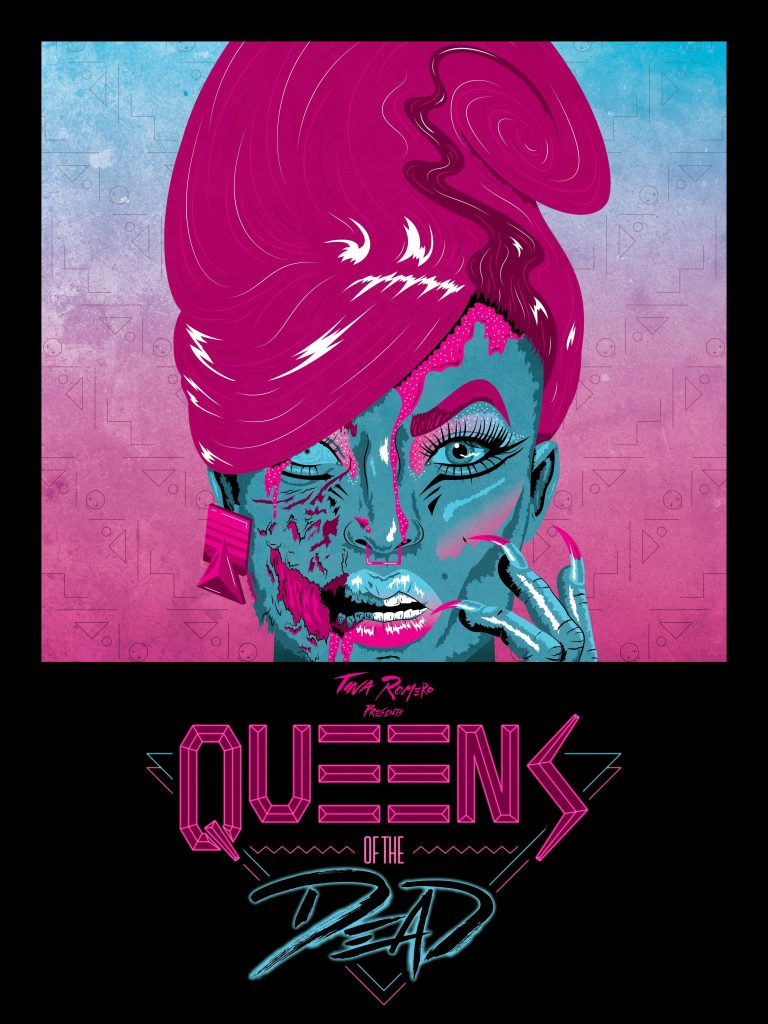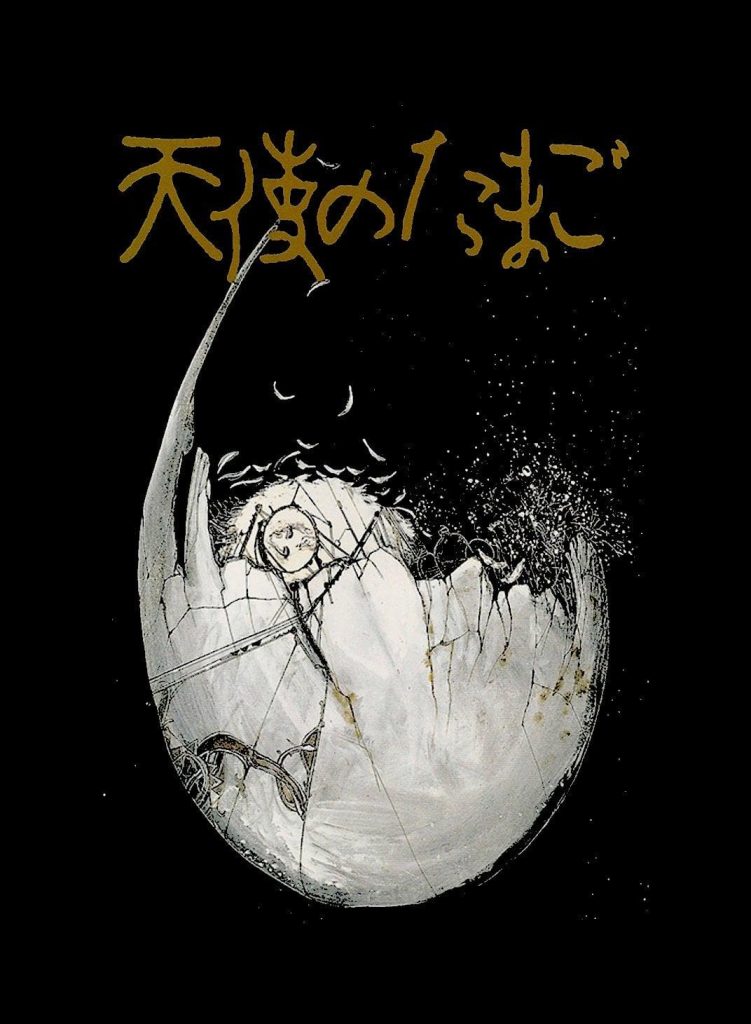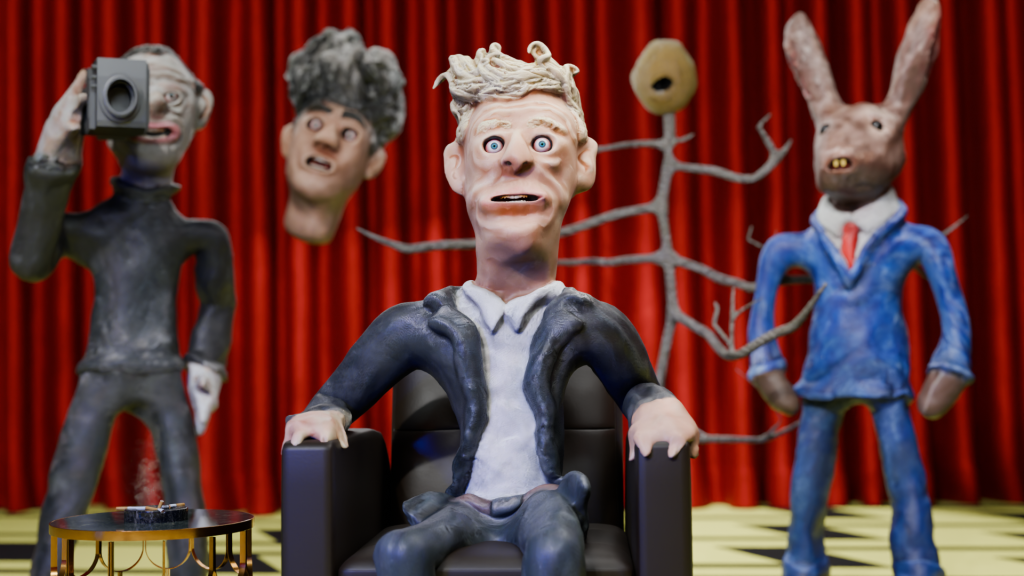Blessed are we in Montreal to have the Fantasia Festival right on our doorstep. This yearly celebration of all things horror, science fiction, and fantasy always has hidden gems lurking in it for those willing to look. For instance, the showcase Animation Tous Azimuts! featured over 30 animated shorts from Quebec filmmakers. These ranged from thirty-second snippets that were clearly created as coursework to intricate big-budget affairs that could well have prefaced a Pixar film. As ever, though, budget was not the determining factor in quality here; the ones that stood out from the pack did so thanks to haunting imagery, clever storytelling, and plain old beautiful use of the medium.
Among these was “The Hum”, a tale of horror that mines the well-established creepiness of dark forests and ancient ruins to great effect. The monster, when it finally appears, is a triumph of freaky creature design—it looks like it could have come out of an ‘80s Carpenter flick, and that’s a compliment. Also bringing up the scare quota was “Exit the Red Room: a David Lynch Tribute”, which delivers exactly what the title promises. Blending imagery from Twin Peaks, Eraserhead, and the lesser-known Rabbits, the short effectively replicated the much-missed director’s signature style in 3D animation. It never really moves past the realm of pastiche, but a loving pastiche is still a beautiful thing.
Similarly surreal, though not as horrific, was “Songes et étrangetés au jardin”, a B&W fever dream seemingly taking place over one night in an overgrown garden. Directors Kimm D. and Caroline Hayeur pull out all the stops to bombard our eyeballs with rare, oneiric sights, from a time-lapse of hordes of insects crawling over vegetation to unclear shapes moving at unearthly speed through the windows. This four-minute-long short easily has more memorable images than many feature-length films I’ve seen. I could say the same for “Emporté par la tempête”, a stop-motion oddity that starts out Groundhog Day and ends up closer to The Babadook. It’s hard to say why this one succeeded in creeping us out so much, but it probably has something to do with the minute, quotidian details mixed in with inexplicable eldritch phenomena. Regardless, it’s sure to not soon fade from memory.

There were also many worthy live-action offerings at the Festival this year, notably director Tina Romero’s Queens of the Dead, a fun tribute to her father’s pioneering zombie films. Unabashedly queer, the film clearly draws from a deep familiarity with the drag community and the juicy intrigue within. Impressively, everyone in the expansive cast gets a defined arc: Katy O’Brian’s put-upon event planner Dre comes to terms with her wife’s pregnancy, Jaquel Spivey’s kindly hospital orderly Sam overcomes stage fright to re-embrace his drag persona, and even Quincy Dunn-Baker’s token straight guy Barry learns to respect people’s pronouns. For someone who was quite sure his character was going to be the first to die, that came as a welcome twist.
The trouble with the film is that it might have benefited from not being a zombie flick. The undead are slow and shambling creatures outfitted with green makeup, which is good for camp, but unfortunately, totally negates their threat value. That would be fine if the film didn’t expect us to take their menace seriously… except it does, as evidenced in a third-act scene when one of the queens tragically sacrifices herself for her comrades. Such conventional dramatic stakes feel tacked-on, distracting from the witty repartee and sharp social commentary on offer. A baffling extended cameo by Margaret Cho is one of many odd choices that further confuse the movie’s tone. In the end, it’s still undeniably a good time, but it could have been more so if it had trusted the charm of its own material more.
Yet another triumph of horror at the festival was Dui Shaw, a series of four individual macabre Bangladesh tales created by Nuhash Humayun. From classic horror premises such as disrespecting a temple leading to brutal supernatural retribution for the gang hired to do it all the way to a fantastical story about a little girl different from the others in her village seeking out the aid of a witch, each of Humayun’s films are a masterclass in building tension and using gore in a disturbing manner without falling into excess. The most intriguing of these films was “Antara,” the tale of a young woman who (at first) appears to be blissfully married to her wealthy, older husband. However, it is quickly revealed that she retains no memories of her life before her marriage. As she begins to notice cryptic writing and other signs that something is deeply wrong, she’s visited by a little girl who states that her current husband stole her away from the funeral of her first husband. After witnessing her current husband play a role in the girl’s murder, Antara unearths memories of before and must make a difficult choice: face her husband for what he is, or choose to stay and have her traumatic memories erased. While it was obvious that the husband was some kind of supernatural being from the start, I wasn’t expecting the religious themes to go in the direction they did, and in the end, Humayun’s interpretation of Christian ideas made for a breathtaking tableau.
For those looking for something more lighthearted, Michael Middelkoop’s Straight Outta Space is the perfect choice. The eclectic thriller sci-fi comedy follows 2 straatcoaches, literally translated as “street coaches,” a form of liaison between the community and law enforcement. Amin (Shahine El-Hamus) and Mitchell (Daniël Kolf) live in a working-class Dutch neighbourhood that is quickly getting gentrified. However, when a new construction site unearths an extraterrestrial creature that’s been buried for 40 years, the pair of slackers is suddenly faced with the end of the world in all its body-snatching glory. Although the film contains some horror elements, the focus leans heavily towards comedy, and the humour is masterfully executed. Everything from the children taunting the street coaches to scenes of a newly-possessed old woman wiping the floor with a pair of overzealous police officers netted more laughs than gasps. However, there were still plenty of unsettling moments of body horror (and so much goop, truly a very viscous movie) and intense chase scenes. Yet, the best part of Straight Outta Space was the setting and its characters. This film is made with a great love for the working-class neighbourhood it is set in, and while we laugh, it’s never aimed at the characters or their socioeconomic status in a mean way.

Finally, while the majority of Fantasia’s offerings are new, the festival’s organizers made an exception for the 40th anniversary of Mamoru Oshii’s Angel’s Egg. This bizarre post-apocalyptic fever dream—and really, fever dream is the only way to describe this movie—follows two white-haired youths in a wasteland. A young girl guards a large egg she believes has an angel inside, and scavenges in the ruins of a city filled with strange automatons in order to sustain herself. The boy enters the city on a tank and follows the young girl, suggesting they break open the egg. While the little girl is initially horrified, they end up speaking more and bonding, with the boy telling the girl a story of Noah’s Ark, where the Ark continued sailing for eternity, and the girl showing him the fossil of an angel. Of course, all of this only partly captures the plot. The main focus of the film isn’t on telling a coherent story, but instead on making the viewer feel the isolation and strangeness of this world. Some sections are nothing but moody music and montages of the desolate, ruined city, as well as the automatons coming to life and pursuing shadows on the walls. Plot elements are breadcrumbed to the viewer, but no easy answers about what it all means spring forth. While Angel’s Egg certainly may not be for everyone, the audience made it infinitely more enjoyable than watching it alone would have been. Despite the large number of people who showed up, any verbal reactions were brief and didn’t interrupt the film unfolding onscreen.
The Fantasia Festival is a smorgasbord of both local and international showings (for example, this was the first instance “Straight Outta Space” has been screened outside of Europe). If you’re a fan of any form of genre film, from romance to science fiction, then do yourself a favour and give their extensive catalogue a look before next year’s festival. 2026 will mark their 30th anniversary, and there will surely be something extra special to celebrate the occasion.


